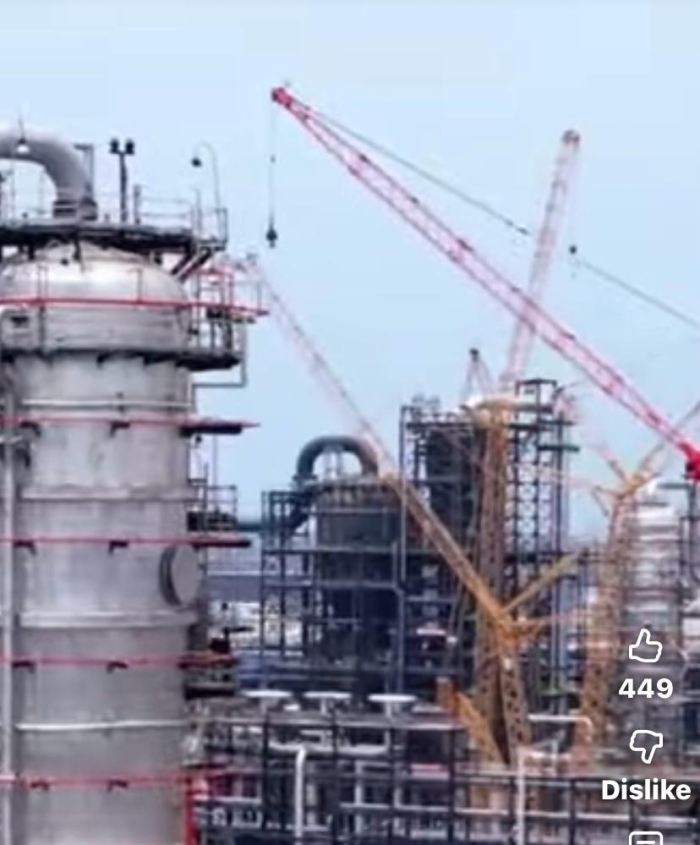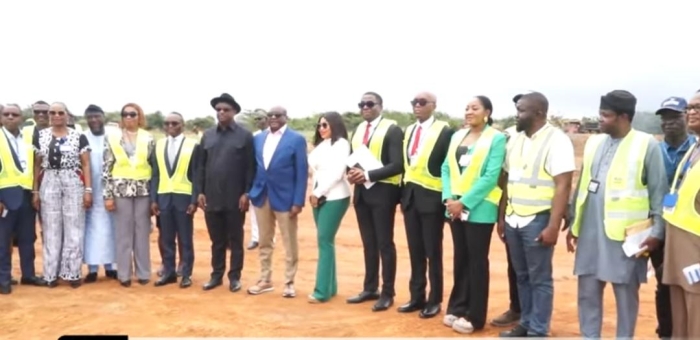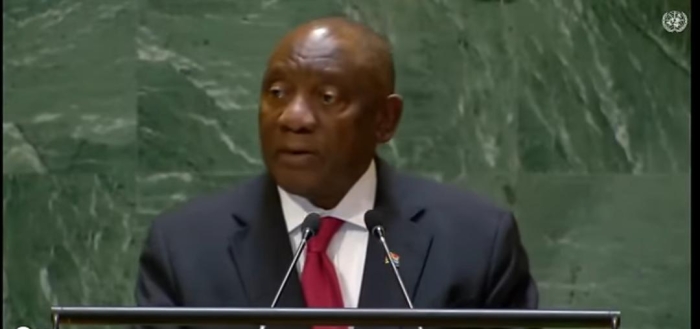SAN hits CJN's turf The Supreme Court, however, famously wept for the dismissed lawmakers whose petitions couldn't legitimately reach the highest court and overturned the Plateau firing, refusing to adopt Justice Waziri's viewpoint. A Senior Advocate of Nigeria (SAN), however, was unimpressed with the Supreme Court's assertion of superiority in the Plateau scandal, notwithstanding the fury that followed the sacking and the court's ongoing praise. Chief Yomi Alliyu expressed confusion with the Supreme Court's rebuke of the Court of Appeal, pointing out that the court had previously rendered heinous decisions in governorship cases.
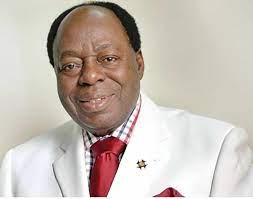
Chief Afe Babalola
In his words, "The Supreme Court, with respect, is departing from the long-standing custom of ruling only on matters that are on appeal before it when it was rendering a decision in a Plateau State matter." The highest court abruptly turned into the judiciary's police force in cases that were not before it! No matter how complicated the case, I think the Supreme Court should hold off on deciding until after it has had a chance to consider it to avoid giving a superfluous ruling that many would see as an attempt to deflect blame for the court's own "sins" in earlier rulings.
"It is important to inquire as to whether the Supreme Court has never erred and boasted that because its rulings are final, they are infallible. Are there no cases in which the Supreme Court flagrantly disregarded earlier rulings or even specific statutory provisions? To prevent the Amaechi issue, for instance, the Electoral Act specified that the declaration of a winner would never apply to an individual who abstained from the election. Did the Supreme Court act per this when it declared the 2014 Katsina State National Assembly elections invalid? Refer to Yardua v. Yandoma (2014) LPELR-24217(SC), among other cases.
When the Court of Appeal sits in as the last court in certain election appeals, will the maxim "be infallible because you are final" not also apply? When there is no way—at least not through the Constitution—to correct the "mistake," shouldn't the Supreme Court's adherence to the notion of the last court's infallibility serve as guidance to prevent it from making careless remarks that can ignite the nation? "Any attorney who dares to request a revisit at the Supreme Court pays through their noses."
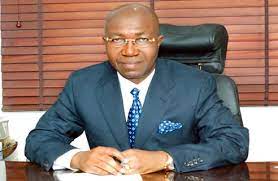
Chief Wole Olanipekun
Inquire about Chief Wole Olanipekun, Chief Afe Babalola, and Chief (Mike) Ozekhome SANs who previously dared to challenge the Supreme Court's ultimate authority and finality! Furthermore, given the Supreme Court serves as a training ground for Court of Appeal judges, one would assume that as former members of that court, they should be aware that the Court of Appeal lacks the authority to vacate its ruling. Since election appeals are sui generis and cannot be resolved upon or reopened beyond the time frames stipulated by the Constitution and the Electoral Act, why was Pontius Pilate justified in doing so?
The Supreme Court's judges have been successful in utilizing the Court of Appeal as cannon fodder, but they seem to have forgotten that many others are gazing at your anus as well when you kneel to spy on someone else's in a dunghill.
Based on the aforementioned principles, the Supreme Court behaved supremely against the interests of the judiciary when it issued rulings and/or pronouncements on a case that was not before it. Aside from dancing to the gallery, their remarks are purely self-serving! "This aberration in the minds of right-thinking persons will hurt the judiciary and the profession." Don dismisses PCA As Alliyu was criticizing the Nigerian Chief Justice's court, Chidi Anselm Odinkalu, a renowned attorney and law professor, was scolding the lower court.
According to the enduring critic of his main constituency, Plateau was the state with the most obstinate Court of Appeal. Additionally, Monica Dongban-Mensem, the president of the court, was born and raised there. On June 11, 2020, two days shy of her 63rd birthday, Mrs. Dongbam-Mensem took office as the seventh President of the Court of Appeal. Simon Bako Lalong, a lawyer who, like Mrs. Dongbam-Mensem, is from Shendam in the Central Senatorial Zone of the Plateau State, was the governor of the state at the time. Nigeria's Supreme Court is still casting the final votes in the 2023 elections, over a year after the nation started voting in February last year.
Election season has been lengthy, torturous, and painful. The Independent National Election Commission (INEC) declared the results after public voting. Both of those phases were completed by March of last year.
The next year, Mr. Lalong named Buetnaan Mandy Dongban Bassi, Monica's daughter, a judge of the Plateau State High Court. The National Judicial Council (NJC), which authorized her appointment, included her mother as a member. Two years later, in September 2023, Paul, the son-in-law of Monica and husband of Buetnaan, was forwarded to the Court of Appeal by the same NJC. "Mr. Lalong campaigned on the APC platform to represent the people of Plateau Central in the Senate in that election as well. Mrs. Dongban-Mensem would have been a constituent if he had prevailed. They reside in the same community. He was defeated by Napoleon Bali of the PDP in the end.
After that, Mr. Lalong appealed his defeat to the electoral petition tribunal. All challenges regarding parliamentary elections are resolved at the Court of Appeal. The president of the court appoints panels of three justices to sit on the court. All appeals in Plateau State were heard by a panel led by Justice Oluwayemisi Williams-Dawodu, a Justice of Appeal serving since March 2014.
He mentioned that Okon Abang, whose tenure on the court started only in October 2023, and Justice Abdulaziz Waziri, who was appointed to the court in 2021, joined her. Additionally, Odinkalu, a former head of the National Human Rights Commission, claimed, "On November 7, this Court of Appeal panel annulled Senator Bali's election. Simon Lalong was declared the winner of the election, even though he had been soundly defeated, by the court.
Lalong was one of several people who benefited from a decision made by the Court of Appeal in the state where Monica Dongban-Mensem was born. By the time it was over, the court had dismissed five members of the House of Representatives who had been elected on the PDP platform in addition to two state senators. The Court of Appeal ousted 16 PDP-endorsed lawmakers from the 25-member state House of Assembly, giving the APC authority over the legislature and their seats.
Timothy Datong (Riyom); Rimyat Nanbol (Langtang); Moses Sule (Mikang); Salome Waklek (Pankshin); Bala Fwangje (Mangu South); Maren Ishaku (Bokkos); Dagogot (Quaanpan North); Nannim Langyi (Langtang North); Nimchak Rims (Langtang South); Danjuma Azi (Jos North-West); Gwottson Fom (Jos South); Abubakar Sani Idris (Mangu North); Happiness Akawu (Pengana); Ibrahim Abalak (Rukuba/Irigwe); Philip Jwe (Barkin Ladi); and Cornelius Deyok (Qua’apan South).
The Court argued that the PDP ought not to have fielded candidates in any of these circumstances. Their logic overturned a slew of rulings from the Supreme Court. This was extremely corrupt judicial misconduct, not an error. The panel ought to have been summoned, at the very least, when they rendered their initial ruling.
Rather, Justice Abdulaziz Waziri, one of the members, said that the PDP "had no structures on the ground at the point they were presenting their candidates" when he traveled to Yola, Adamawa State, last December to celebrate the mandates they had thrown out. Only he could truly understand what he meant. This amounted to a legal hatchet job. It is absurd to assert that the Court of Appeal's president was not a panel member herself. Because of the current status of the Nigerian courts, Monica Dongban-Mensem's three-person panel assigned to Plateau status could not have caused so much harm without her active approval, if not direction.
It is quite unbelievable that a Justice of Appeal, such as Okon Abang, who was sworn in just in October 2023, could have traveled to the court president's home state and boldly caused so much political harm. The Supreme Court said on Friday that the Plateau Court of Appeal was corrupt, rogue, and perverse. It overturned the court's justification for denying the populace their rightful representation. However, the Supreme Court's ruling does not provide a solution for the political catastrophe because the Court of Appeal is the ultimate court in these cases.
The lawmakers who believe their mandates have been stolen have a right to feel defeated. It is acceptable for the Plateau people to feel deceived. A few judicial mobsters have permanently damaged the judiciary's reputation. "Those three Justices on the Plateau Court of Appeal panel ought to be held accountable even now," he insisted.
(SAN) observed in his analysis of the problems that the PDP is bringing its petition against the Court of Appeal to the National Judicial Council, which is essentially a toothless dog in the case. As to his statement, "The NJC is not responsible for reviewing, reviewing, or overturning judgments. In my opinion, it is not a feasible course of action because the main goal is to only reprimand the offending judges, which does not truly solve the justice issue that the public and those who are impacted are concerned about.
"In that regard, I have never heard it said that the justices who presided over those instances committed any fraud or misconduct. One of the prerogatives of judges also applies if it is about them making mistakes, which is the meaning of the Supreme Court's decision to support the governor of the plateau case. They can be wicked, wildly correct, and right all at the same time. Additionally, unless the decision is overturned, it has no bearing on the validity of the ruling.
But it also speaks volumes about the caliber of the decision and the judicial officers involved, which in any case affects how far they may advance in their careers—especially as justices of the appeals court, where they still have a rung to climb. "Judges who engage in these types of activities ought to be cautious by now, particularly in cases when the Supreme Court has to publicly support them.”






